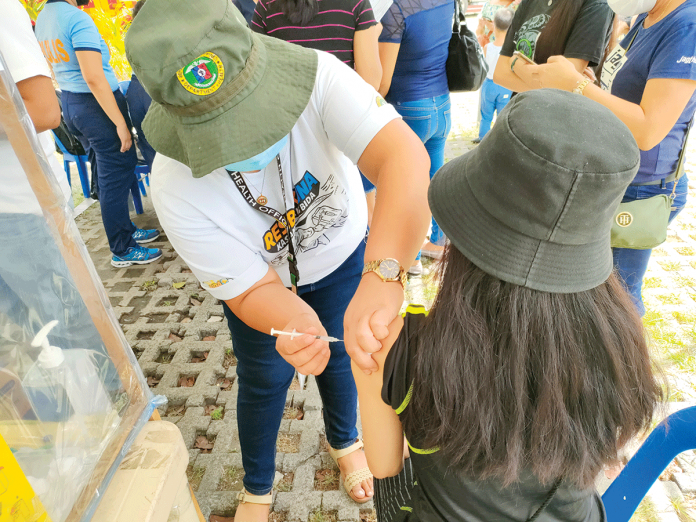
ILOILO City – Face-to-face classes in higher education institutions (HEIs) are only for teachers and students fully vaccinated against coronavirus disease 2019 (COVID-19), according to the Commission on Higher Education (CHED) in Western Visasyas.
There are 153 HEIs in the region. CHED increased the number of those allowed to conduct in-person classes to 50 from 28 announced early this month.
“Limited sya in the context nga ang aton mga estudyante kag mga teachers nga allowed mag-engage sa face-to-face modality sa aton mga eskwelahan ang fully vaccinated lang,” said CHED Region 6 director Raul Alvarez Jr.
So far, according to Alvarez, roughly 65 percent of college students in Western Visayas, 95 percent of HEI teachers and 93 percent of HEI staffs are fully vaccinated against COVID-19.
“Amo na ang aton ginapangayo sa aton mga parents. Kon wala man lang problema sa ila nga health, I hope mapabakunahan ang aton tanan nga estudantye sa collge agud mabalik man ang normalcy sa ila nga pag-eskwela,” said Alvarez.
There are lots of competencies that cannot be learned through flexible learning or online learning, he explained.
“Kinanglan ang aton mga estudyante makabalik gid nga maka-eskwela kag ang outcomes nga gina-expect naton…ang competencies and skills mapagwa gid nila kag matun-an sa eskwelahan,” said Alvarez.
What will happen to students who are not yet fully vaccinated?
They should maintain flexible learning methods, said the CHED-6 director.
“Wala na ya nagsiling nga lagbungon sila ukon indi pagpa-eskwelahon. Kontra na ya sa aton nga rights. Right na ya sang aton kabataan nga makatapos sila, so indi magkakulba,” Alvarez stressed.
He added, however, that there are courses or programs – such medical courses – that require the physical presence of students in class. This is the reason why medical-related courses were the first to be allowed to hold face-to-face classes.
“At this point in time, kon ano man ang mga misconceptions naton sa bakuna, i-set aside naton. Doctors and the Department of Health assure that the (COVID-19) vaccine is (safe),” said Avarez.
CHED-6’s target at this time is to revive face-to-face classes in 80 percent of the colleges and universities in the region by April.
Meanwhile, newly-issued CHED Memorandum Order No. 1-2022 provides supplemental guidelines to CHED-DOH Memorandum Circular No. 2021-004 on the additional guidelines for the operations of limited face-to-face classes of HEIs in areas under Alert Level 1.
The allowable seating capacity in classrooms of HEIs in areas under Alert Level 1 is at a maximum of 100 percent. However, HEIs may decide on a reduced capacity based on its capability to comply with the minimum health and safety protocols.
There is no restriction as to the physical distance among students and teaching and non-teaching personnel attending limited face-to-face classes. But HEIs may provide physical distancing protocols they deem appropriate.
As to engineering controls, if possible windows in the classrooms shall be open and exhaust fans should continuously operate while there are occupants.
HEIs are also required to install/maintain hand hygiene and sanitation facilities and install visual cues or signage on mask-wearing, hand hygiene, DOH hotlines and other health and safety reminders.
Well-fitted masks shall be worn properly except when eating and drinking in designated areas, when participating in team and individual sports and other outdoor activities.
Also, among others, use of plastic or acrylic barriers are optional in areas under Alert level 1 but disinfection of the classrooms and other facilities shall be done regularly./PN





